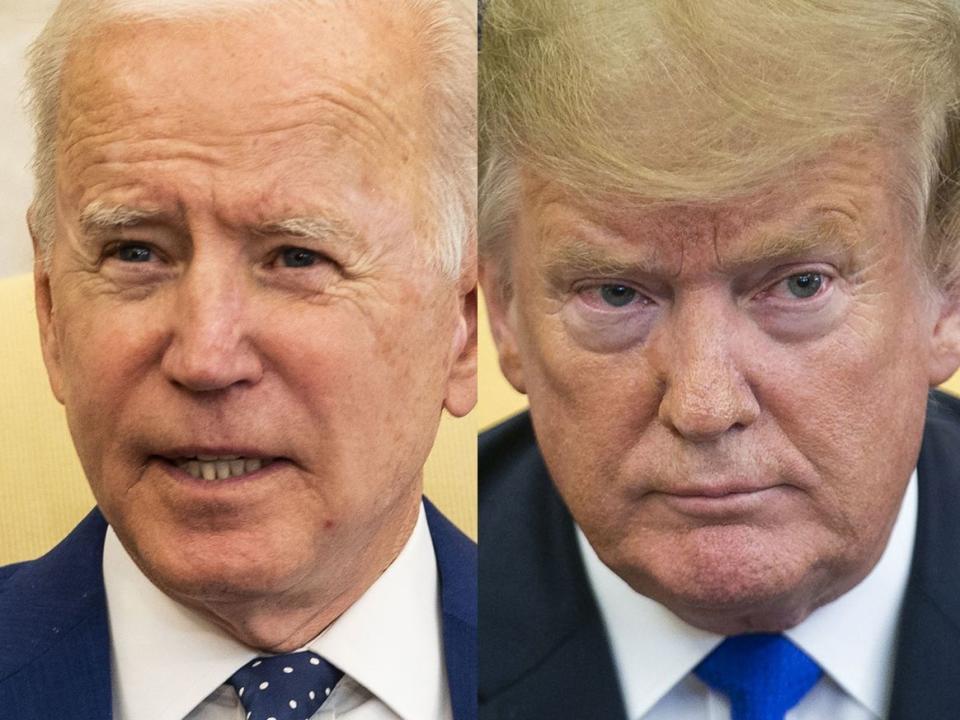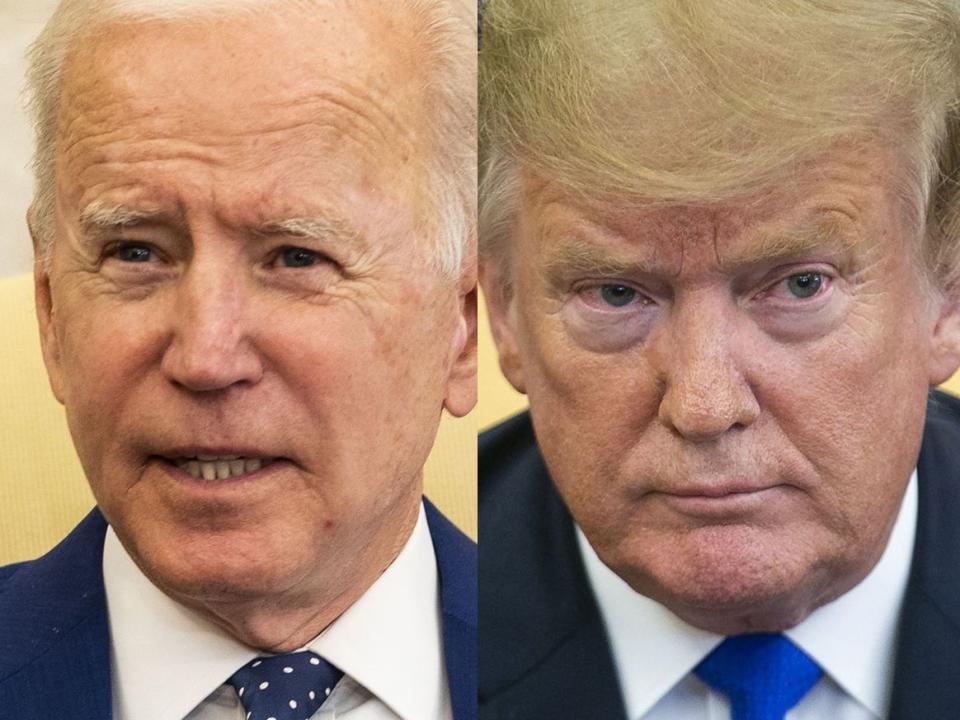Two Special Counsels for Two Presidents: Breaking Down the Differences
- Oops!Something went wrong.Please try again later.
- Oops!Something went wrong.Please try again later.
- Oops!Something went wrong.Please try again later.
- Oops!Something went wrong.Please try again later.
(Bloomberg) -- The two special counsels appointed by Attorney General Merrick Garland have basically the same assignment: Exploring whether anyone — including a current or former president — criminally mishandled sensitive government information.
Most Read from Bloomberg
Pfizer Bivalent Vaccine Linked to Strokes in Preliminary Data
At Least 68 Dead as Nepal Plane Crashes Seconds Before Landing
This Isn’t Your Mom and Dad’s Recession, Says BofA’s Subramanian
Huge Sanctions Are Looming for the Fuel That Powers the World
But Special Counsels Jack Smith and Robert Hur find themselves operating in vastly different investigative environments.
Garland’s decision to bring on Smith and Hur is designed to address head-on the extraordinary circumstances and conflicts — real or perceived — at play. One investigation centers on President Joe Biden, the current officeholder who appointed Garland and holds the power to fire him. The other involves former President Donald Trump, a powerful political foe of the Biden administration.
Both men are, as of now, likely repeat presidential candidates in 2024 and Garland cited the “public interest” in putting independent decision makers in charge.
But these probes sharply diverge in terms of what’s known about the conduct at issue as well as key practical logistics. Biden and top White House aides have pledged to cooperate. Trump has blasted the records probe as a political “witch hunt.” Before Smith came in, prosecutors spent months fighting in court with Trump’s lawyers over their ability to use materials they’d seized from his Mar-a-Lago estate over the summer.
The Timeline
The Biden administration kicked off the investigation on its own.
The White House counsel’s office in early November immediately notified the National Archives after documents with classified markings were found at an office Biden used in Washington, according to Garland. A Federal Bureau of Investigations review began a few days later. On Dec. 20 and then again this week, a personal attorney for Biden informed the Justice Department that more records were found at the president’s home in Wilmington, Delaware.
The Trump probe began in reverse order, and saw the government taking escalating steps to force the former president to turn over documents.
The National Archives spent months trying to recover government records that they say Trump should have returned when he left office. Staff discovered documents with classified markings in boxes Trump turned over in January 2022, at which point they contacted the Justice Department. In court filings, prosecutors said Trump then tried to delay FBI access. The Justice Department eventually issued a subpoena in May for any other classified materials at Mar-a-Lago. Trump’s lawyers turned over another folder of documents in June, but prosecutors said the FBI had reason to believe there were more and got a search warrant from a Florida judge.
The Tenor
Trump and his Republican allies have taken an adversarial and often hostile stance toward the Justice Department’s investigation, attacking the legitimacy of the probe, deflecting blame, and floating baseless conspiracy theories. His lawyers have maintained that he can’t be criminally liable and suggested improper political motives are involved.
Biden and White House staff have struck a different tone; the phrase “cooperating fully” is repeatedly used. Intent can matter as prosecutors decide whether to prosecute a classified information case, and White House lawyer Richard Sauber released a statement saying they were “confident that a thorough review will show that these documents were inadvertently misplaced.”
Cooperation can matter for other reasons. In the Trump probe, court documents showed that the Justice Department was not only investigating whether sensitive government information was mishandled, but also whether there was obstruction of justice. Bloomberg News previously reported that there are prosecutors who believe there are grounds to bring that charge against Trump.
The Biden White House has faced questions about why it took several months for information to reach the public about the discovery of classified materials. According to Garland, the Justice Department was working behind the scenes throughout that time. Garland on Nov. 14 assigned John Lausch, the US attorney in Chicago, to do an initial investigation and make a recommendation about whether to appoint a special counsel.
The Logistics
There are practical differences in the investigations, too.
Smith took over a team that had been working on the Mar-a-Lago investigation for months and already made critical decisions along the way. Hur is starting closer to the beginning. It’s unclear if he’ll bring on anyone from Lausch’s office who was involved in the initial review. Under federal special counsel regulations, he can detail staff from across the Justice Department or make outside hires.
There’s been no official confirmation of how many documents were found at Biden’s office and home, though the White House described at least the initial collection as “small.” In the Trump probe, the FBI found hundreds of documents with classified markings in the boxes that originally went to the National Archives and the ones found during the August search.
The Next Steps
A big open question is what Garland would do if Hur concludes Biden committed crimes. The Justice Department has a longstanding policy against prosecuting a sitting president. There’s no such blanket policy covering a former president.
These types of records investigations don’t always lead to charges, said Brandon Van Grack, a former senior Justice Department official who served in former Special Counsel Robert Mueller’s office, which investigated Russian interference in the 2016 presidential election and whether Trump allies were involved.
A key issue for the government is what happens once someone becomes aware of an issue involving classified information, Van Grack said, and it appeared Biden’s representatives had been responsive and taken steps to carry out more searches and return documents.
“That doesn’t mean it’s the end of it. The mishandling of classified documents is serious, there should be a thorough investigation conducted by the Department of Justice, and that’s what happening,” he said.
Most Read from Bloomberg Businessweek
Airlines Resurrect Ancient Jumbo Jets to Meet First- and Business-Class Demand
Housing Pain to Continue Until Economy Slows and Prices Fall
Young Bankers Who Got Used to Smooth Sailing Prepare for a Storm
©2023 Bloomberg L.P.



